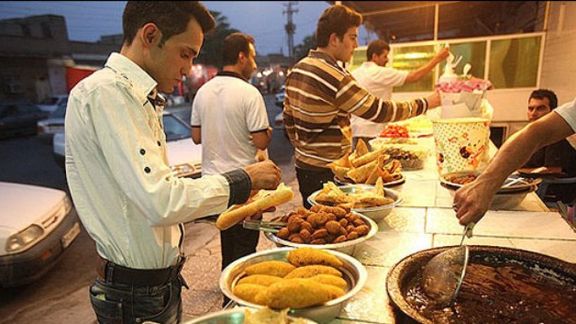Iran's Bread Crisis Stirs Heated Debate Amid Political Chaos

The controversy surrounding an unusual rise in bread prices in Iran led to confusion and heated debates at the Iranian parliament, Majles, Sunday morning.

The controversy surrounding an unusual rise in bread prices in Iran led to confusion and heated debates at the Iranian parliament, Majles, Sunday morning.
The Majles held a session behind closed door to probe into the cause of the problem, but the parliament's presidium member Alireza Salimi told the press that as questions put to Economy Minister Ehsan Khandouzi and Agriculture Minister Javad Sadatijejad dragged on and on, the Majles continued the debate in an open session.
The political scene appeared to be in chaos as parliament scrambled to appear active, demanding answers from the government, while officials seemed unable to present coherent explanations.
According to Salimi, the ministers told the parliament that reasons behind the recent flour price increase include the war in Ukraine, the draught in the region and Iran's problems in importing wheat as protests took place over the weekend in the oil-rich Khuzestan province.
Salimi added that lawmakers called on the government to clearly name the senior officials responsible for economic decisions. This was because of discrepancies in government statements about the cause the rising price of bread and about how to sort out the problem.
Meanwhile, Majles Speaker Mohammad Bagher Ghalibaf told ISNA news websitethat price increases were unacceptable and the government should have first issued electronic coupons for underprivileged citizens to make sure they could still buy bread at a subsidized rate. Ghalibaf also revealed that the government will be issuing electronic coupons for other commodities such as cheese.

Ghalibaf said the way the government dealt with the rising prices of pasta and bread caused serious concern as people thought this was the beginning of more widespread price increases.
He also criticized first vice president Mohammad Mokhber for not showing up in parliament to offer explanations to lawmakers.
In a belated explanation on the state television late on Saturday night, Mokhber said that "The subsidy on bread and medicine will not be cut off." He added: "We have allocated a subsidy to traditional bread which according to legislation will be paid via electronic coupons. Subsidies have also been considered for other essential commodities to compensate for rising prices." Mokhber reiterated that these subsidies will be paid into the accounts of the heads of families before government raises prices."
While the vice president spoke about government assistance plans, bread prices have already risen fivefold in the past few days.
Mokhber's remarks convinced few people as others including Vice President for Economic Affairs Mohsen Rezaei offered a different explanation. Rezaei said on state TV that everyone in Iran will be getting 2 to 3 million rials (8-12 dollars) in cash handout from the government every month. However, he had to immediately return to the TV studio and deny his own statement on national television.
Remarks by Ghalibaf and Mokhber indicated that bread rationing is part of the government's plan to tackle rising prices, but officials disagreed about the size of the ration.
During Sunday, Iran International TV showed footage of Iranian Lawmakers at the Majles angrily reacting to the government's chaotic policy on pricing and distribution of bread.
According to Didban Iran website lawmaker Ahmad Hossein Fallahi charged that the ministers who reported to the Majles on Sunday had nothing new to say about the problem or its solution. The website quoted lawmaker Hojjatollah Firouzi as saying that the situation has given rise to concerns at the parliament, and another lawmaker Ebrahim Azizi criticized the government for not offering explanations to the people before the price rise.
Iranian journalist Solmaz Ikdar told Iran International that lawmakers have realized Raisi is unpopular, and his policies have failed, so they try to distance themselves from his administration.